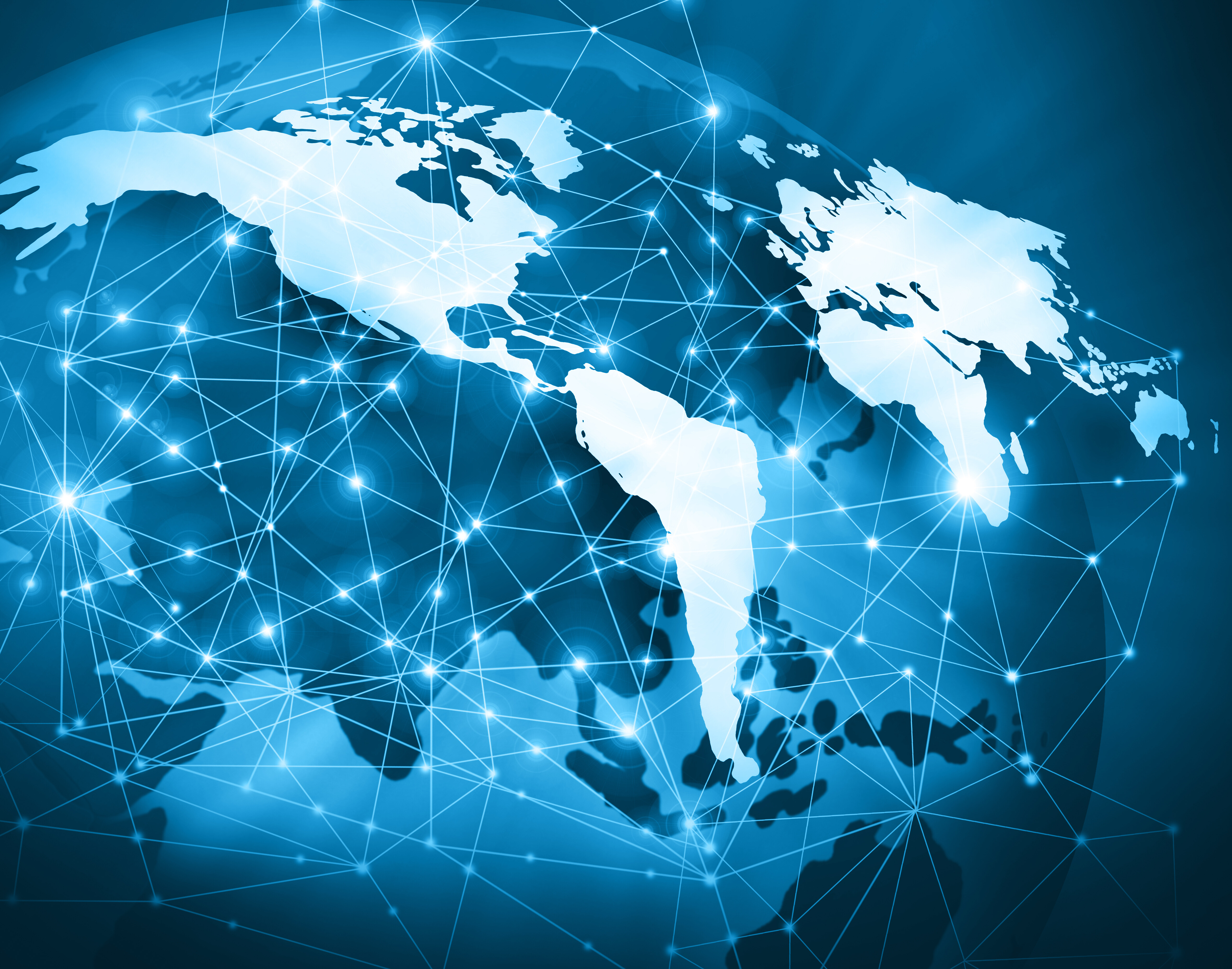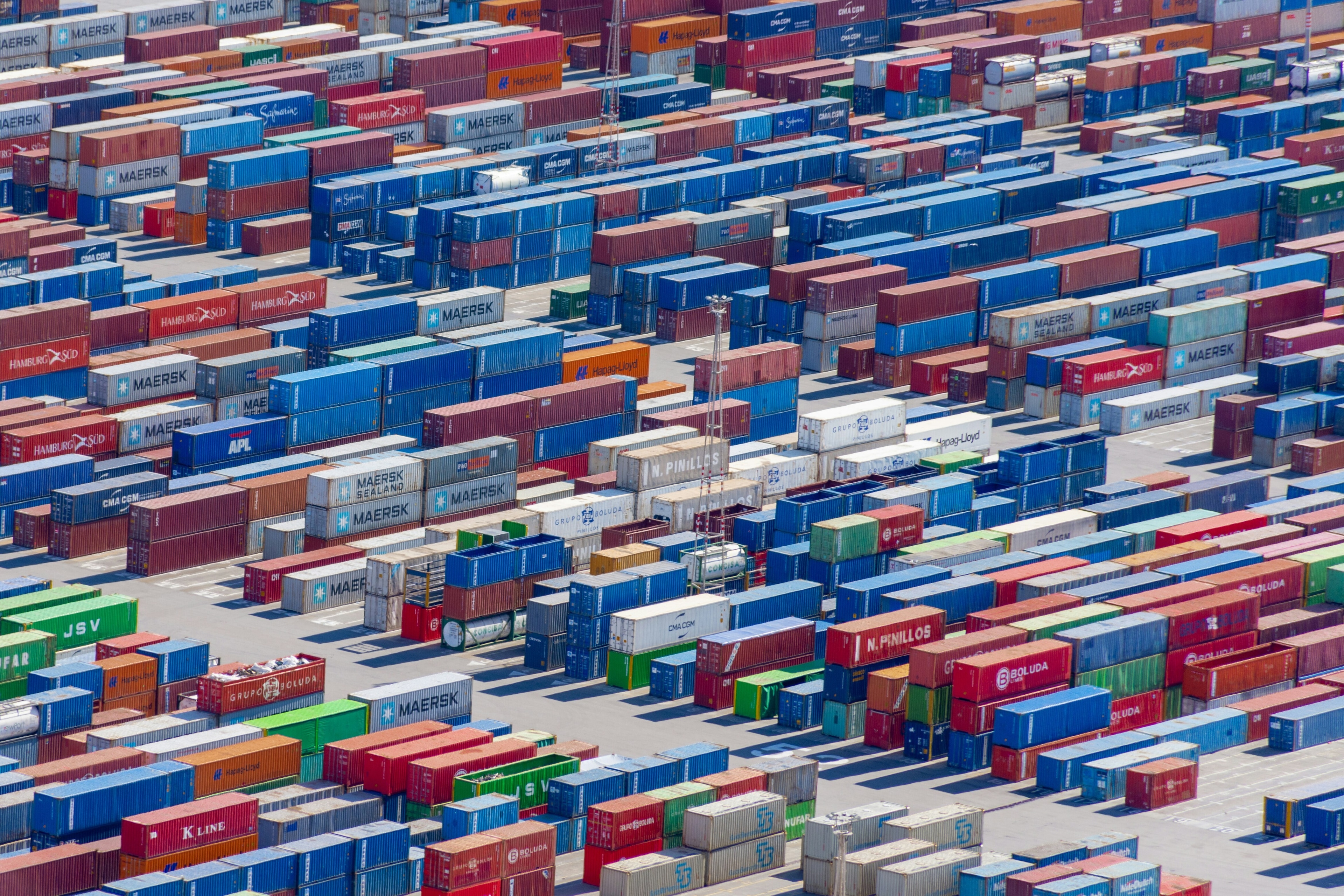Trust links up supply chains. How do you establish it in the digital era?

A UPS employee loads boxes of medical supplies in Louisville, Kentucky. Image: REUTERS/John Sommers II
Several enterprises in global supply chains have moved their digitalization focus outwards towards the business networks of which they are part. Supply-chain actors need to work digitally with others across national borders to optimize the flow of physical goods, as well as the complex flow of information and financial transactions.
In digital business relationships like global supply chains, it is essential to ensure there is a legal entity behind the identities involved in a business interaction. Today, most digital identity systems exist in isolation. Different public and private solutions record and maintain identical identity data potentially hundreds of times over, and are not inter-operable, creating a significant amount of redundant identity information. This is a waste of resources for the network in question, is difficult to scale, and buried in error-prone and paper-heavy processes
Digital identity ensures integrity in connecting the physical and the digital world. In global digital supply-chain transactions, it is essential for a legal entity to prove its own identity and check those of other parties, each of which requires a unique, verifiable and authentic digital signature.
Envision a model where businesses and governments are able to instantaneously validate the trustworthiness of any legal entity they intend to engage in a business interaction. Which would enable more fluid and dynamic supply chains where you can engage with the right business entities, things and autonomous software agents at the right time, to procure the right services. With none of the cumbersome task of registering and approving your supply chain partners ahead of the interaction.
The recent World Economic Forum White Paper Trustworthy verification of digital identities recommends realizing a shared digital Global Trade Identity (GTID) for business and public authorities involved in global trade. A GTID is a foundational element in more efficient trade facilitation, and as such is a requirement for reducing several supply-chain barriers. The 2013 World Economic Forum report Enabling Trade: Valuing Growth Opportunities shows that “Reducing supply chain barriers to trade could increase global GDP by nearly 5% and trade by 15%”. Although digitization isn’t the only activity that will help remove supply-chain barriers, GTID is a prerequisite for harvesting most of the digitization benefits; a foundational contributor to the increased global GDP and trade that stems from digitization.
GTID requires global collaboration, and such collaboration must be based on principles designed for neutrality and inclusivity:

WEF’s GTID White Paper illustrates a model that supports these principles and ensures a digital Global Trade Identity infrastructure where business and governments can manage their own identity without relying on a third party. Each party can present the verifiable identity credentials they prefer, and the receiving party is able to use its own internal business rules and regulations for validating the trustworthiness of the presented identity credentials. To enable inclusive global trade, GTID supports businesses of any size; each country’s required investment is insignificant, and GTID supports even countries with very limited digitization level. The model also ensures that no single entity controls important components of GTID, protecting it from shifting political priorities.
If you don’t trust an entity, you likely don’t do business with that entity.
Identity and the level of trust assurance are at the core of every supply-chain interaction. Organizations need to ensure they are dealing with the right entity and efficiently link a digital identity and a real organization, and more importantly evaluate the trustworthiness of a given legal entity. This process of dynamically verifying counterparts – digital identity management and verification – is a critical step in establishing trust and assurance for organizations participating in digital transactions.
GTID is a prerequisite for efficient digitization of global supply chains and supports the digital era’s increased focus on optimizing an overall business environment, instead of organization-centric optimization.
WEF’s Enabling Trade report shows that increased trade is a significant contributor to increased wealth globally, with positive effects on unemployment, potentially adding millions of jobs to the global workforce. Lower supply chain cost through digitization is effective because it eliminates resource waste and reduces costs to trading firms and, by extension, lowers prices to consumers and businesses. The report shows that small incremental changes may have minimal effects until a tipping point is reached, and the realization of GTID will allow any country to reach the tipping point faster and for a smaller investment
If you do not know who your business partners are, dynamic digital interactions in global supply chains will never happen. Therefore, realizing a common digital global trade identity is a foundational step in trade, worthy of priority from industry and governments.
Don't miss any update on this topic
Create a free account and access your personalized content collection with our latest publications and analyses.
License and Republishing
World Economic Forum articles may be republished in accordance with the Creative Commons Attribution-NonCommercial-NoDerivatives 4.0 International Public License, and in accordance with our Terms of Use.
The views expressed in this article are those of the author alone and not the World Economic Forum.
Stay up to date:
The Digital Economy
Forum Stories newsletter
Bringing you weekly curated insights and analysis on the global issues that matter.
More on Supply Chains and TransportationSee all
Isabel Cane and Rob Strayer
November 13, 2025






